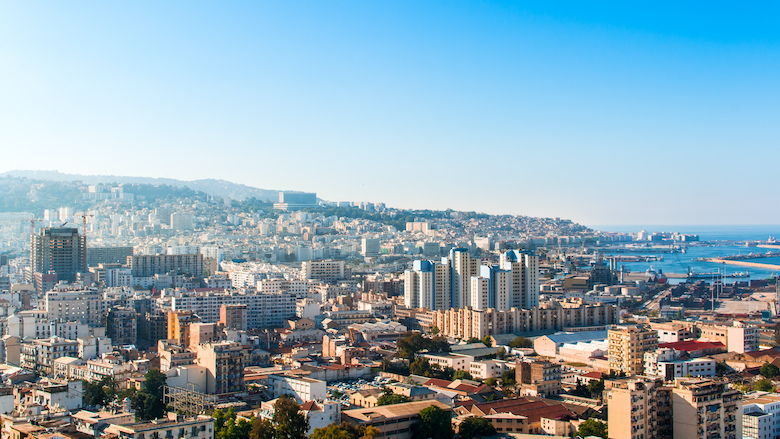The COVID-19 pandemic and concurrent crash in oil prices endangered Algeria’s vulnerable macroeconomic environment, and the new authorities are now grappling with a multifaceted crisis. Swift lockdown measures have helped slow down the pandemic, severely affecting activity in the meantime. The sharp fall in global hydrocarbon prices and demand added to the sector’s difficulties, cutting further into the hydrocarbon rent. Therefore, swift action to curb the twin deficits and structural reforms to foster private-led growth have only become more urgent.
In 2019, protracted social mobilization and a lengthy political transition increased economic uncertainty and discouraged activity. Consumption slowed, as did investment, albeit more markedly. Correspondingly, growth moderated in construction, agriculture and commercial services. While nonhydrocarbon GDP growth moderated, to 2.4%, hydrocarbon GDP shrunk by 4.9%. A new Hydrocarbon Law with improved terms for investors was published, seeking to revive investment. Meanwhile, restrictions on foreign investment were lifted in non-strategic sectors. The current account deficit stabilized, as imports tracked lower domestic spending and import restriction policies, canceling the effect of lower hydrocarbon prices.
Lockdown measures will generate sharp falls in aggregate demand components, and the effect of economic uncertainty could be protracted. External and fiscal deficits will rise, with the fall in hydrocarbon revenues only partly counterbalanced by falling imports and public investment, respectively, and by currency devaluation. Inflation should remain subdued until demand starts recovering. A partial recovery in 2021 and 2022 is predicated upon a partial recovery in demand, in hydrocarbon production and exports, and on a set of structural reforms that restore confidence and foster private sector investment.

